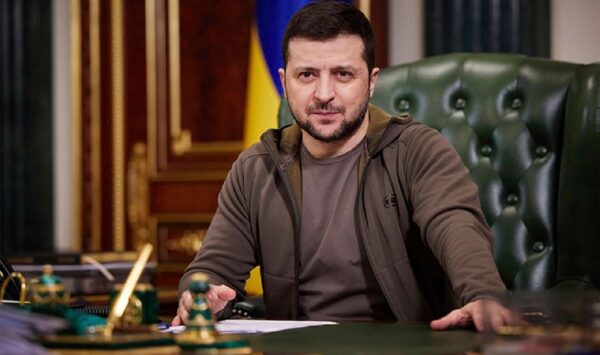Hold onto your hats, Eurovision fans, because controversy is brewing! In a surprising turn of events, the European Broadcasting Union (EBU) has made headlines by refusing President Zelensky’s request to address the audience at the Eurovision Song Contest. But isn’t Eurovision supposed to be “non-political”?
In an official statement, the EBU emphasized the so-called “non-political nature” of the contest, conveniently forgetting that politics have sneaked their way onto the Eurovision stage countless times. Remember when Ukraine made a powerful statement with their song “1944” or when Ireland stood up for same-sex love? Oh, but apparently, those were just exceptions to the rule.
While President Zelensky’s intentions were commendable, the EBU has firmly put its foot down, sticking to its strict rules and regulations. But let’s not forget that this is the same organization that allowed political messages to be conveyed through subtle lyrics, symbolic staging, and even national voting patterns.
But here’s the real kicker: the EBU wants us to believe that Ukraine’s presence at the 2023 Eurovision Song Contest is enough to appease our thirst for politics. They boast about featuring 11 Ukrainian artists, collaborating with local talents, and showcasing picturesque locations throughout Ukraine in those fancy “postcards.”
So, dear Eurovision fans, buckle up for an event that claims to be “non-political” while simultaneously providing a stage for political undertones. As we eagerly await the spectacular performances, let’s keep our eyes peeled for those subtle nods, meaningful lyrics, and strategic voting patterns that make Eurovision the delightfully political extravaganza we all love.




